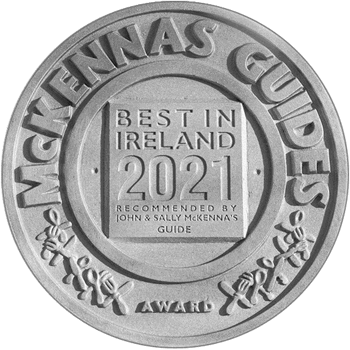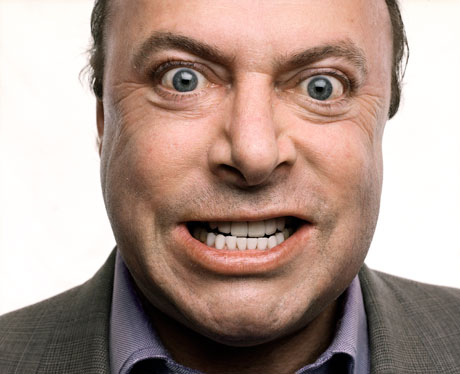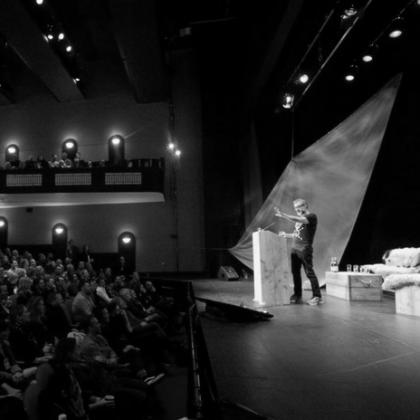Too much has been written since Christopher Hitchens' death last week but, as so much of the output has been personal – my great friend/drinking buddy; great orator but what-a-pain-in-the-butt – I have not read anything which pondered the central fact of his life and work:
If Hitch was so smart, why was he so stupid?
Because Hitch was doubtlessly smart, and he was astonishingly stupid, and the two went hand-in-hand. He used his smarts to advance his stupidity, not just in relation to the Iraq war, but right from the start, as you would need to in order to explain to himself why being a young Oxbridge Marxist made perfect sense. The smart-stupid paradox is a big problem, visible everywhere from Newt Gingrich to Norman Mailer to Charles Haughey, and whilst it is not exclusively a male problem, it is loud, egotistical males who best encapsulate it, and Hitch encapsulated it perfectly.
Of course, we can all be smart and act stupid, but those who behave like this for a profession tend to live in a graceless place, where everyone else is at fault, where there is no need to exercise decorum, and no need to ever apologise. The Smart-Stupid always knows everything, and has always known everything.
It wasn't always like this in public affairs. JM Keynes could cooly say “When the facts change, I change my mind. What do you do, sir?”, a quote that acknowledges both intellectual and human frailty. Of course, as a man with a formidable memory, Hitch would no doubt shoot back with another Keynsianism: “Words ought to be a little wild, for they are the assault of thoughts on the unthinking”. Indeed they are, and Hitch was good at the wild words. But that was all he was good at.
Hitch and the Stupid-Smart Paradox
Archive - all the best places to eat, shop and stay in Ireland. A local guide to local places.







